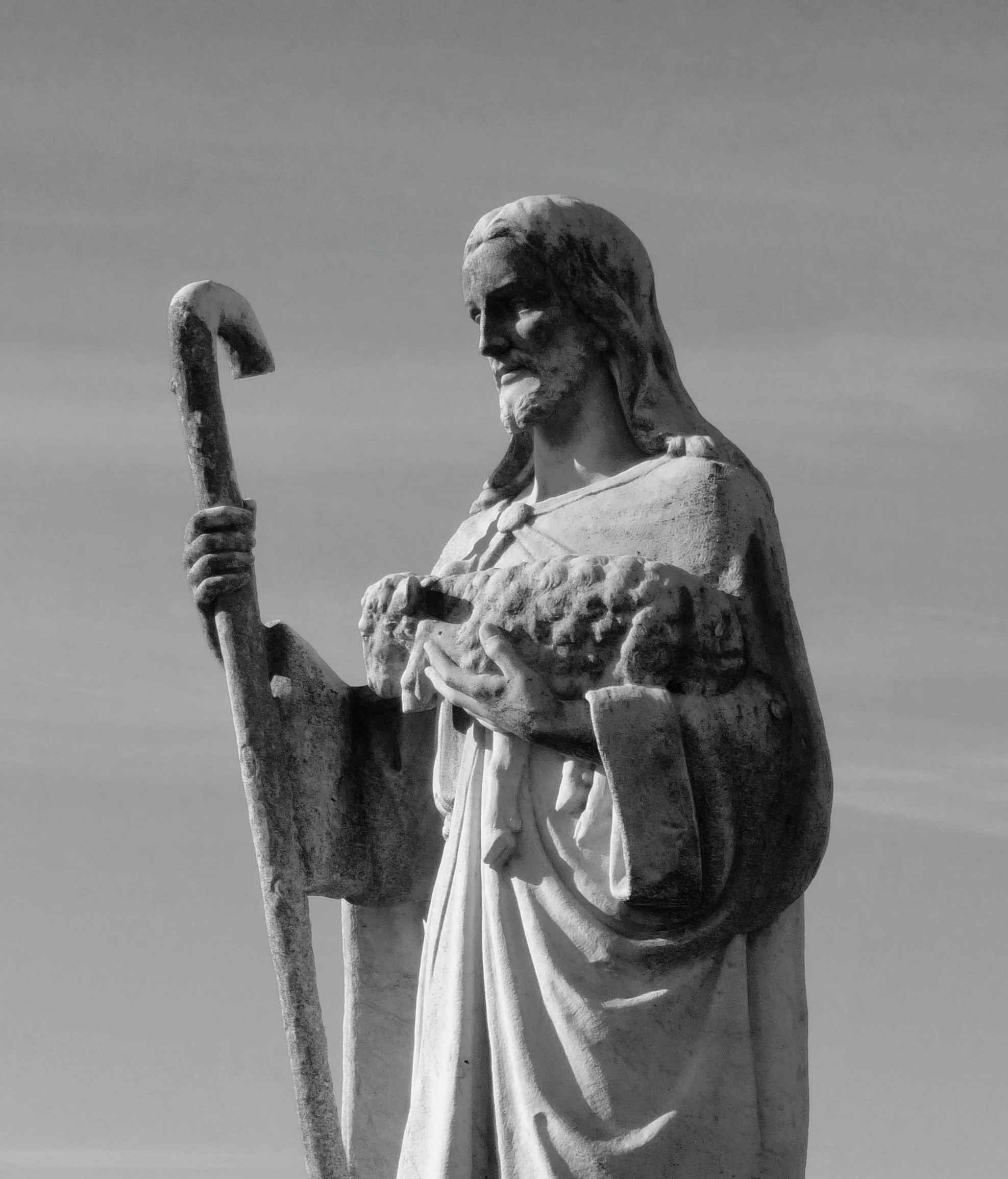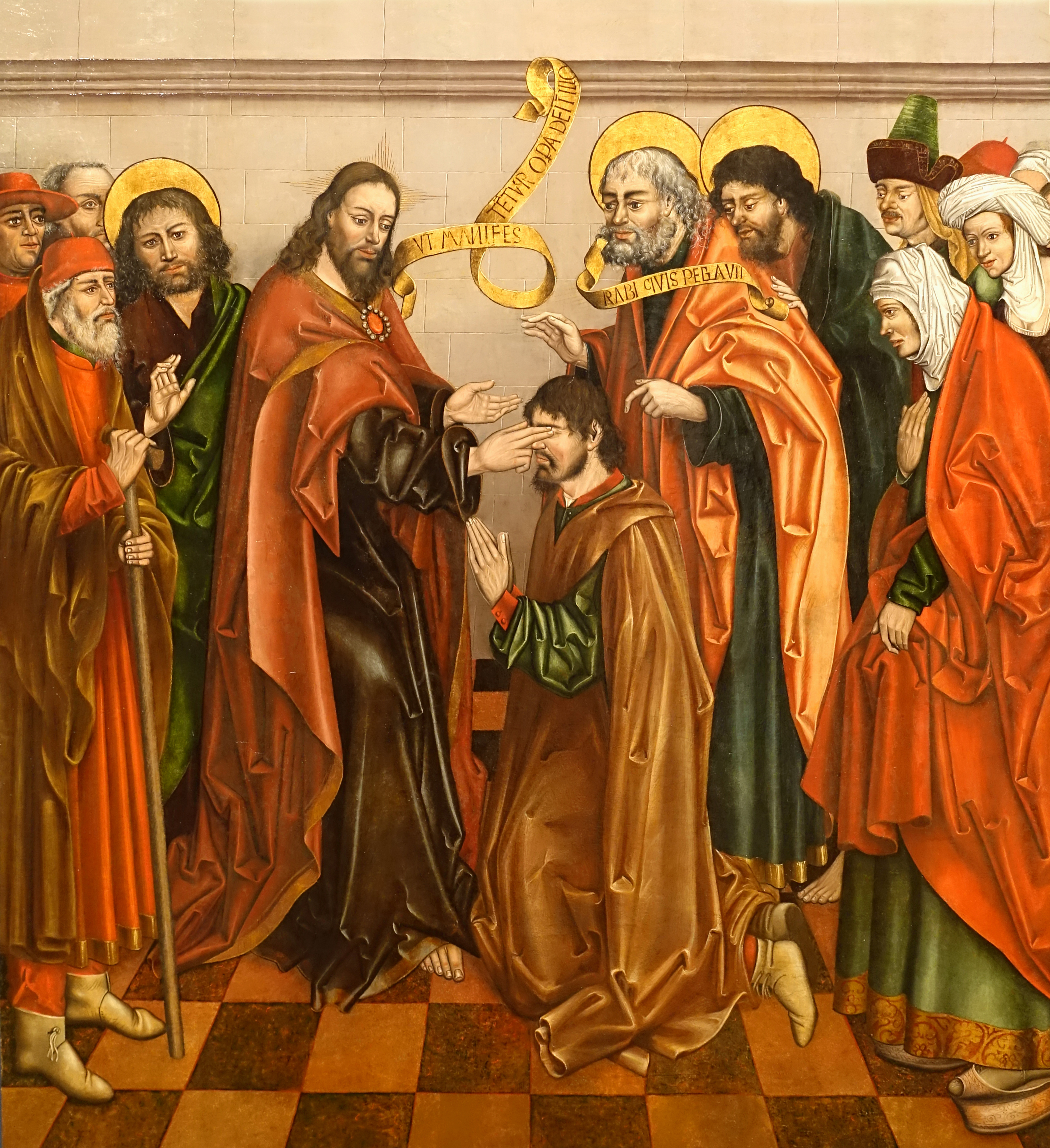It hardly seems possible that November is already upon us. It seems like just yesterday that my kids were playing in the blow-up pool, running through the sprinkler and riding their bikes through puddles. It seems like just yesterday that they were telling me how bored they were since I didn’t let them play video games 24/7 during their three months off school. It seems like just yesterday that we went to Lake Michigan every weekend we could, to enjoy the endless blue sky and the ocean-like wind and waves… But now the fall is upon us. The way-too-short summer is long gone and winter is just a breath away. But winter is in itself an opportunity for some stark stillness, to reflect on whether or not we need to scrape some frost off our hearts.
I recently read two different things that turned my thoughts in the same direction. The first article pointed out how God worked in the desert. He freed the Hebrews from slavery in the desert, John the Baptist heralded the coming of Christ in the desert, and Jesus drew strength from prayer in the desert. The second one spoke of growth through silence. Zechariah, the father of John the Baptist, grew stronger in his faith while he was temporarily silenced and God forms babies who are so wonderfully made in the silence of their mothers’ wombs.
Both of these ideas, along with a recent retreat experience, got me thinking about how God truly does desire for us to come away with Him. He wants to separate us from the daily grind, bring us into a completely different space and breathe new life into us. He wants us to find that desert spot, that place of silence where He can speak to us in the depths of our being. He wants to reignite the spark if our faith has grown dim and rekindle the fire if our love has grown cold.
But just like those invited to the great dinner in today’s Gospel, we often look for ways to excuse ourselves from His invitation. We are too busy, too distracted, too tired… and whether inadvertently or otherwise, we miss out on the spiritual feast that He is offering us through quiet time with Him. Heaven is the “home” that He wants filled and every day we have the opportunity to take one more step toward it through union with God in prayer.
No matter what season we may find ourselves in, whether summer, fall, winter or spring, may we find the courage to come away with Jesus in the desert silence. May we heed His call and go to Him when we hear Him speak gently to our hearts “Come to me, all you who labor and are burdened, and I will give you rest.” (Alleluia verse)
Parece casi imposible que noviembre ya esté aquí. Parece que fue ayer cuando mis hijos jugaban en la piscina inflable, corrían bajo el rociador y andaban en bicicleta por los charcos. Parece que fue ayer cuando me contaban lo aburridos que estaban porque no les permití jugar a los videojuegos las 24/7 durante los tres meses que no tenían clases. Parece que fue ayer cuando íbamos al Lago de Michigan todos los fines de semana que podíamos para disfrutar del cielo azul infinito y del viento y las olas que parecían del océano… Pero ahora el otoño ya está aquí. El verano demasiado corto ya pasó hace tiempo y el invierno está a un suspiro de distancia. Pero el invierno es en sí mismo una oportunidad para un poco de calma absoluta, para reflexionar sobre si necesitamos o no quitarnos un poco de escarcha del corazón.
Hace poco leí dos cosas diferentes que hicieron que mis pensamientos se dirigieran en la misma dirección. El primer artículo señalaba cómo Dios obraba en el desierto. Liberó a los hebreos de la esclavitud en el desierto, Juan el Bautista anunció la llegada de Cristo en el desierto y Jesús obtuvo fuerzas de la oración en el desierto. El segundo hablaba del crecimiento a través del silencio. Zacarías, el padre de Juan el Bautista, se fortaleció en su fe mientras estuvo temporalmente silenciado y Dios forma a los bebés que son hechos maravillosamente en el silencio del vientre de sus madres.
Ambas ideas, junto con una experiencia reciente de retiro, me hicieron pensar en cómo Dios realmente desea que nos vayamos a un lugar aparte con Él. Quiere separarnos de la rutina diaria, llevarnos a un espacio completamente diferente e infundirnos nueva vida. Quiere que encontremos ese lugar desértico, ese lugar de silencio donde pueda hablarnos en lo más profundo de nuestro ser. Quiere volver a encender la chispa si nuestra fe se ha apagado y reavivar el fuego si nuestro amor se ha enfriado.
Pero al igual que aquellos invitados a la gran cena en el Evangelio de hoy, a menudo buscamos formas de excusarnos de Su invitación. Estamos demasiado ocupados, demasiado distraídos, demasiado cansados… y ya sea a propósito o no, nos perdemos el banquete espiritual que nos ofrece a través del tiempo en silencio con Él. El cielo es el “hogar” que quiere llenar y cada día tenemos la oportunidad de dar un paso más hacia él a través de la unión con Dios en la oración.
No importa en qué estación nos encontremos, ya sea verano, otoño, invierno o primavera, que encontremos el valor de ir con Jesús al silencio del desierto. Que escuchemos su llamado y vayamos corriendo a Él cuando lo escuchemos hablar suavemente a nuestro corazón: “Vengan a mí, todos los que están fatigados y agobiados por la carga, y yo les daré alivio, dice el Señor.” (Aclamación antes del Evangelio)
 Tami Urcia grew up in Western Michigan, a middle child in a large Catholic family. She spent early young adulthood as a missionary in Mexico, studying theology and philosophy, then worked and traveled extensively before finishing her Bachelor’s Degree in Western Kentucky. She loves tackling projects, finding fun ways to keep her little ones occupied, quiet conversation with the hubby and finding unique ways to love. She works full time at Diocesan, is a guest blogger on CatholicMom.com and BlessedIsShe.net, and has been doing Spanish translations on the side for over 20 years.
Tami Urcia grew up in Western Michigan, a middle child in a large Catholic family. She spent early young adulthood as a missionary in Mexico, studying theology and philosophy, then worked and traveled extensively before finishing her Bachelor’s Degree in Western Kentucky. She loves tackling projects, finding fun ways to keep her little ones occupied, quiet conversation with the hubby and finding unique ways to love. She works full time at Diocesan, is a guest blogger on CatholicMom.com and BlessedIsShe.net, and has been doing Spanish translations on the side for over 20 years.
Feature Image Credit: Katerina Kerdi, unsplash.com/photos/woman-walking-at-desert-9TdomzK-2d0




 Dr. Alexis Dallara-Marsh is a board-certified neurologist who practices in Bergen County, NJ. She is a wife to her best friend, Akeem, and a mother of two little ones on Earth and two others in heaven above.
Dr. Alexis Dallara-Marsh is a board-certified neurologist who practices in Bergen County, NJ. She is a wife to her best friend, Akeem, and a mother of two little ones on Earth and two others in heaven above.
 Kathryn Mulderink, MA, is married to Robert, Station Manager for Holy Family Radio. Together they have seven children (including Father Rob), and eleven grandchildren. She is President of the local community of Secular Discalced Carmelites and has published five books and many articles. Over the last 30 years, she has worked as a teacher, headmistress, catechist, Pastoral Associate, and DRE, and as a writer and voice talent for Catholic Radio. Currently, she serves the Church by writing and speaking, and by collaborating with various parishes and to lead others to encounter Christ and engage their faith. Her website is
Kathryn Mulderink, MA, is married to Robert, Station Manager for Holy Family Radio. Together they have seven children (including Father Rob), and eleven grandchildren. She is President of the local community of Secular Discalced Carmelites and has published five books and many articles. Over the last 30 years, she has worked as a teacher, headmistress, catechist, Pastoral Associate, and DRE, and as a writer and voice talent for Catholic Radio. Currently, she serves the Church by writing and speaking, and by collaborating with various parishes and to lead others to encounter Christ and engage their faith. Her website is 



 Allison Gingras (
Allison Gingras (
 A lover of Jesus Christ, a wife, and a mother of five,
A lover of Jesus Christ, a wife, and a mother of five, 

